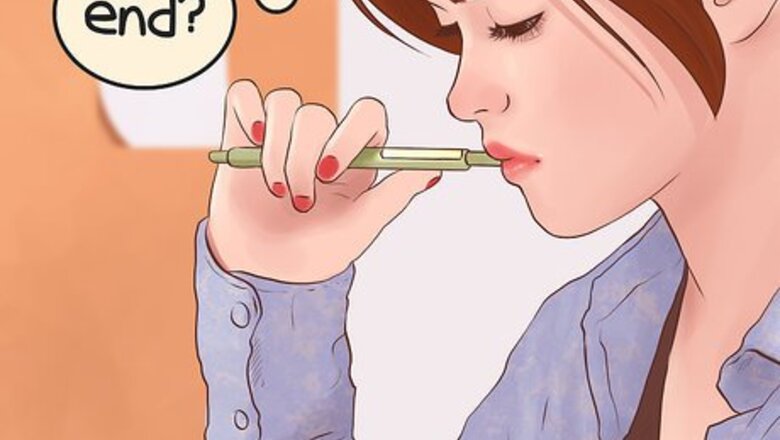
views
Applying “Yet” as an Adverb

Put “yet” at the end of a sentence to describe something that hasn't happened. It is often used in negative statements in which you use a negative term like “have not” or “has not.” For example, you may say, “I haven’t completed my homework yet,” or, “I haven’t eaten breakfast yet.” You can also say, “She hasn’t watched the episode yet,” or, “He hasn’t phoned me back yet.”

Use “yet” in the middle of the sentence to discuss something unknown or unclear. This approach is often used in more formal discussions or conversations. “Yet” is often placed after “have,” “are,” or “has.” For example you may say, “We have yet to determine if she is on board,” or, “Our guests are yet to arrive.” You may also say, “The price has yet to be announced.”

Place “yet” in a sentence to show a situation or event is ongoing. “Yet” is used in a sentence if you want to let others know that you are still in a situation and it is going to continue in the near future. You can use “yet” in positive statements in the present to let others know that a situation or event in the present is not finished yet. For example, you may say, “I have a lot more work yet,” to let others know your work is not finished. You may say, “There is a lot more time yet,” to tell others that there is still time in the present to complete a task or activity.
Using “Yet” for Emphasis or Addition

Use “yet” to indicate an additional issue or problem. “Yet” can be used as a stand-in for “in addition.” It is often used in a negative statement to discuss another thing the speaker has to deal with or address. For example, you may say, “Yet another source of trouble,” or, “Yet another issue to deal with.”

Put “yet” in a sentence for emphasis. Similar to terms like “even,” “still,” or “more,” “yet” can be used to stress a point or create a more vivid image. It usually appears before terms like “another” or “again.” For example, you may say, “My mother served her yet another piece of pie,” or, “The coffee machine broke down yet again.”

Place “yet” at the end of a sentence to show enthusiasm or excitement. You can also use “yet” as a superlative to let others know how thrilled you are. For example, you may say, “That was her best film yet!” or, “That was her greatest performance yet!” You may also say, “A time of 3 hours and 10 minutes, his best marathon yet!”
Using “Yet” as a Conjunction

Use “yet” like “but” in a sentence. “Yet” can give a sentence a certain distinctiveness and tone that “but” may not be able to do. Try replacing your use of “but” with “yet” in your sentences, placing a comma before “yet.” For example, you may say, “Stella plays tennis well, yet her favorite sport is soccer,” or, “I’m good at writing sonnets, yet I prefer reading haikus.”

Put “yet” in a sentence to expand or add to the content. “Yet” can help you provide more information about a subject or event that may be contradictory or ironic. It is often used in negative sentences, similar to how you might use the conjunction “nevertheless.” For example, you may say, “The new tenants complained about the noise, yet they continue to play their music loud,” or, “She dislikes meeting new people, yet she still showed up at the party.” Often, you can remove the subject in the second half of the sentence. This allows you to remove the comma as well. For example, you may say, “The new tenants complained about the noise yet continue to play their music loud,” or, “She dislikes meeting new people yet still showed up at the party.”

Start a sentence with “yet” to give it tone and flow. “Yet” is often used at the start of a sentence to share an afterthought or a second guess. It can also add a conversational flow to your sentences. For example, you may say, “Yet, despite my complaints, I still miss her company,” or, “Yet I must admit I value facts more than mere superstitions.”




















Comments
0 comment